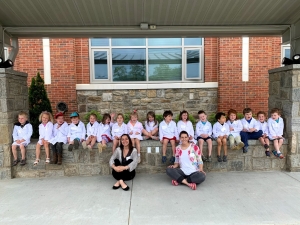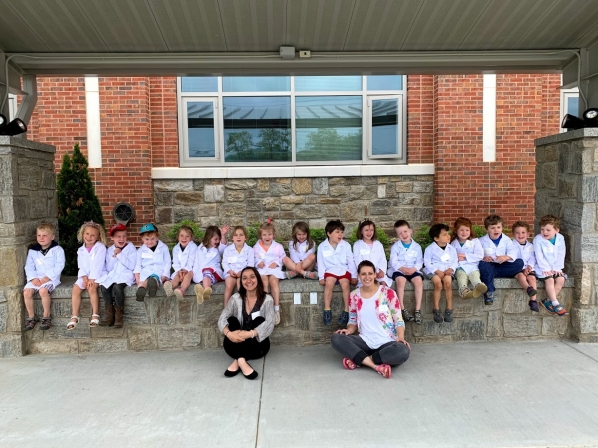It began with a curiosity of wanting to know more about the human body and culminated with a poster presentation. No, this is not a thesis from one of our senior science majors. Instead, this is from some of our youngest Mountaineers at Lucy Brock Child Development Lab School (LBCDLS).
On Thursday, June 20, the preschool class shared with faculty, staff, students, practicum students, family, and friends the knowledge they gained about the human body in their Human Body Exhibit. Examples of their knowledge included a song they wrote with master’s candidate in music therapy, Emily Wills; a life-sized tracing of their own body, which included their drawings of their bones and organs; and a large body mixed media sculpture consisting of recycled materials, created by the entire class as a collaborative project.
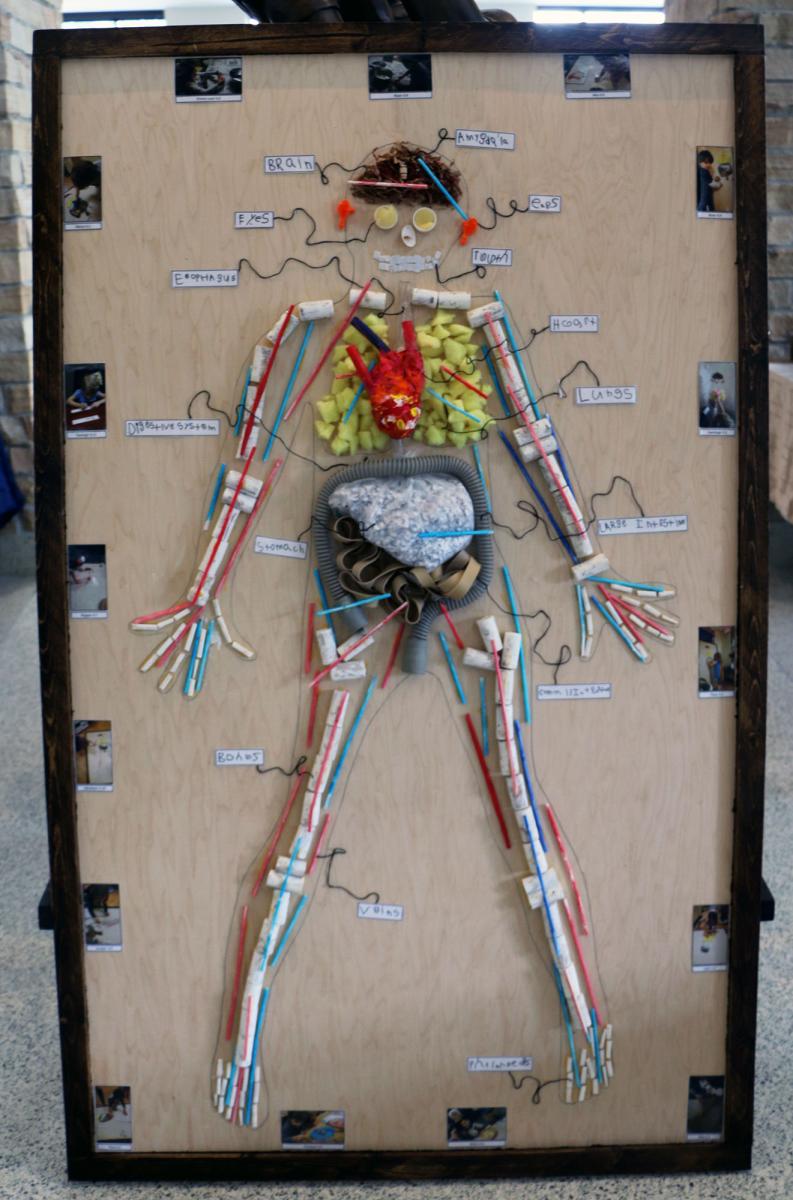
"Watching the children using their knowledge to choose and gather materials to build the human body, was fascinating and inspiring," said Valentina Ferrara, lead teacher and current Appalachian student.
Lead teacher and Appalachian alumna, Jennifer Klutz, said, “The preschoolers gained this knowledge through researching resources such as books, puzzles, images, and technology.”
An example of the research the preschoolers conducted comes from child development practicum student, EriKa Irizarry. She implemented experiences to engage the children in research to learn more about bones, such as assisting the children to create a life-size skeleton made of building blocks to help the children understand the different types of bones represented in their bodies.
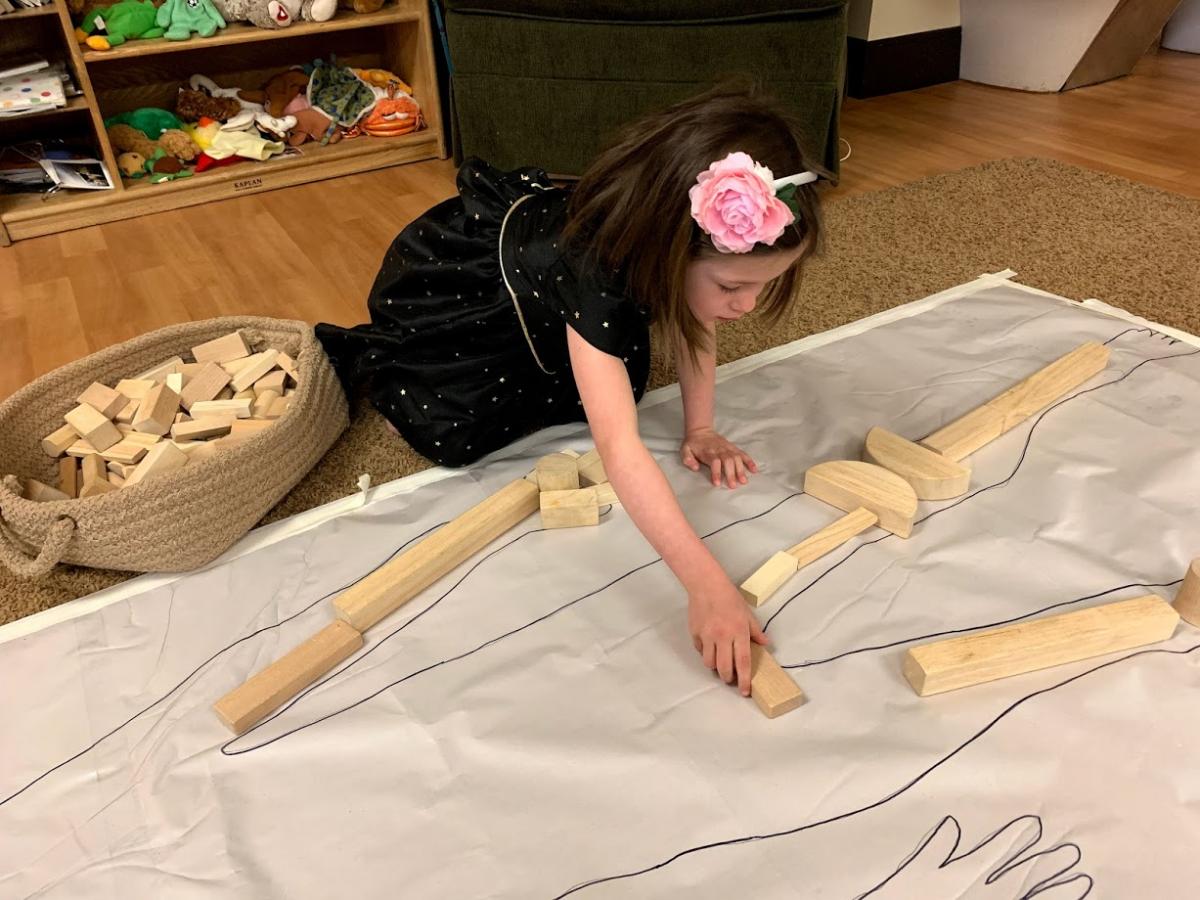
“The children also had the opportunity to take a field trip to Levine Hall to visit the anatomy lab,” said Klutz.
This type of project work is representative of the curriculum child development students are learning about in their classes and at LBCDLS.
“Our goal is to capitalize on children’s innate ability to research and learn about a subject in depth,” said Director, Andrea Anderson. “We want our college students to see the depth of young children’s thinking. In doing so, the students learn about child development and how to facilitate meaningful learning for young children.”
Field Trip
Everyone was greeted by Dr. Jordan Hazelwood, assistant professor in the Department of Communication Sciences and Disorders, and Dr. Ashley Goodman, professor in the Department of Health and Exercise Science and director of the Athletic Training Program.
“Students moved through stations where they investigated life-size models of human bones and organs, and interacted with a life-size, virtual anatomy dissection table,” said Goodman. “The students called the Anatomage table ‘the giant iPad.’”
Along with lead teachers Klutz and Ferrara, parents accompanied their children on the visit.
“This was a great experience as an instructor,” said Hazelwood. “I had to vary the level of instruction based on who I was teaching: parent or child.”
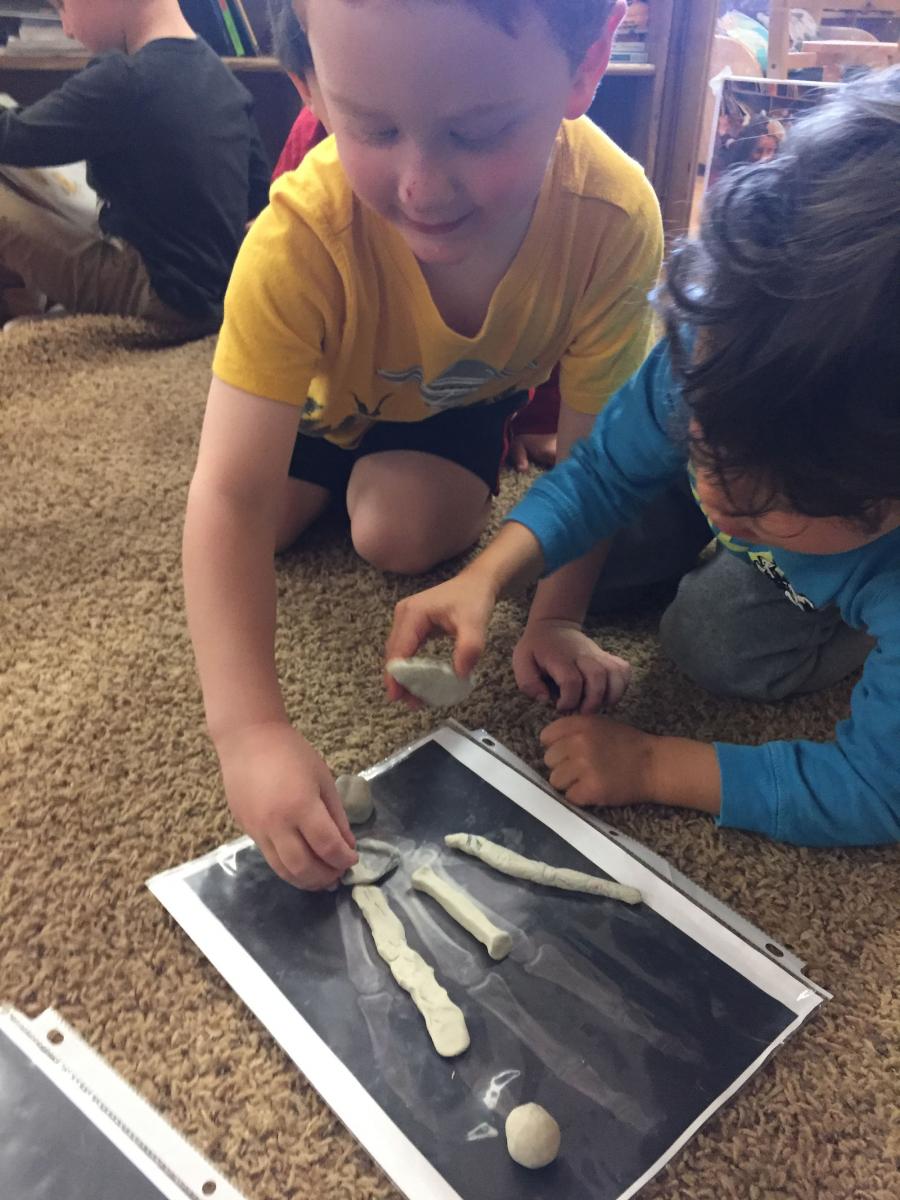
For their field trip, each child was provided a lab coat, courtesy of one of the parents who works at the medical center.
“The students told me (paraphrased) that it made them feel like ‘real’ scientists,” said Hazelwood. “We talked about why scientists wear lab coats - ‘for protection and so people can know what jobs we do.’”
Faculty and students from other academic programs also utilize and collaborate with LBCDLS to experience learning opportunities with young children.
“I was excited to be invited to participate in this learning; I was able to focus not only on interdisciplinary learning, but also inter-university projects,” said Hazelwood.
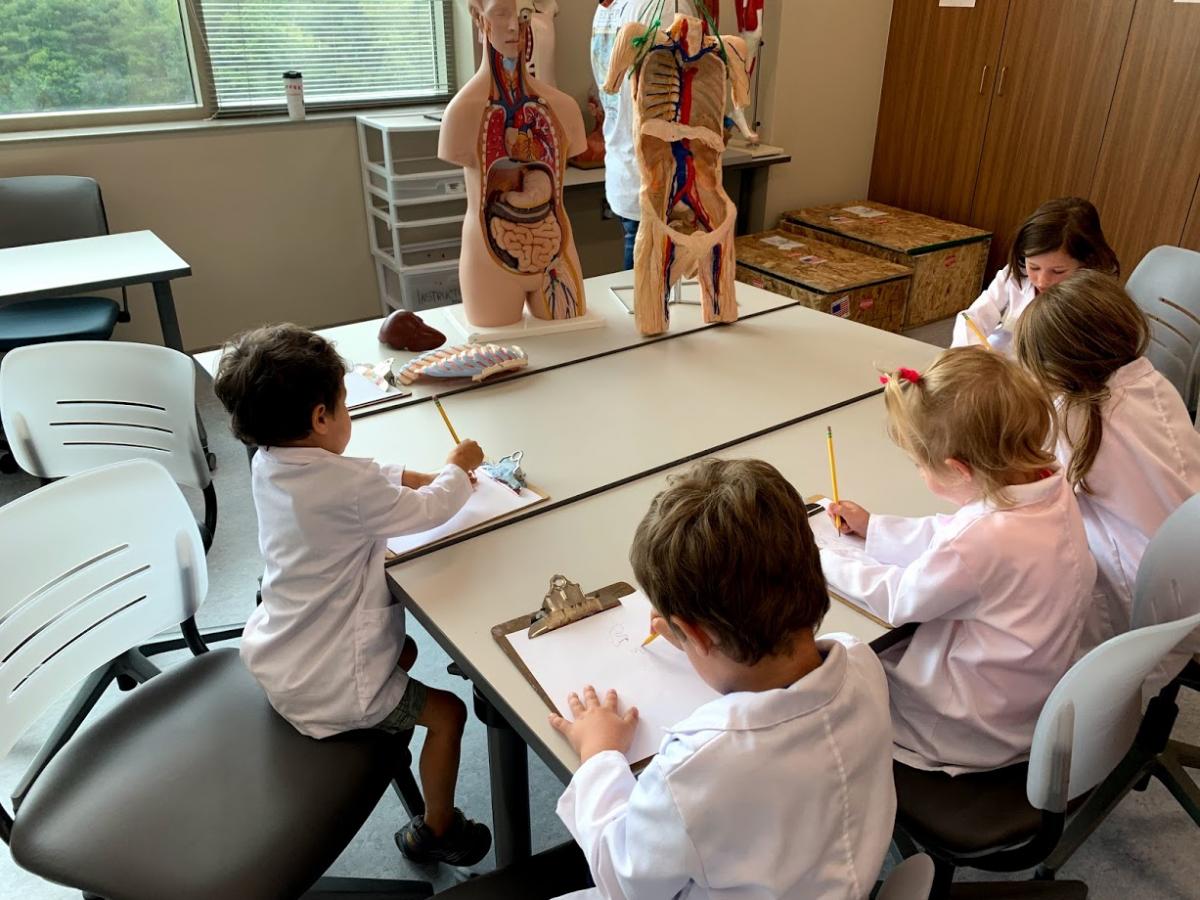
Anderson, Hazelwood, and Goodman are planning to submit an article to the Journal of Appalachian Health, which focuses on improving the health status of the population of Appalachia through the rapid dissemination of knowledge of their health problems and evidence-based solutions to them. The article will describe how student-led learning can be integrated at multiple levels of the university system to support community health across multiple ages and disciplines.
In addition, Klutz and Ferrara are presenting on the project at the North Carolina Association for the Education of Young Children’s annual conference this September in Raleigh.
Parents Perspective
“There are not enough words to explain how Lucy Brock changes the trajectory of a child’s life,” said parent Carolyn Clark. “An example is like this event where she is able to demonstrate her knowledge of the body.”
Each week parents are provided with a pedagogical documentation or a collection of photos and/or narratives of their child’s experience, essentially making learning through play visible.
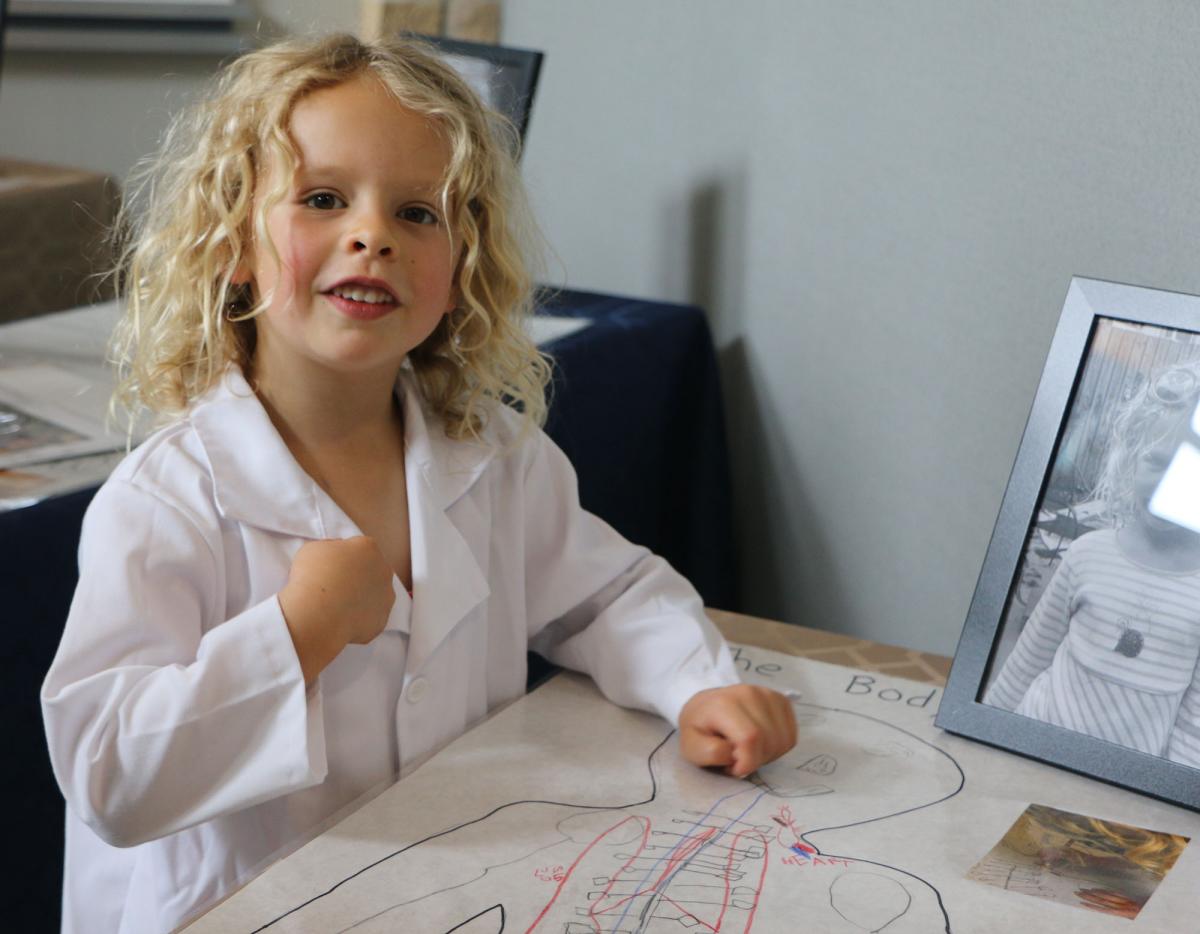
When asked why do you love Lucy Brock, Carolyn’s daughter, Everleigh Rasmussen, exclaimed, “I get to learn so much!”
“I love working at Lucy Brock because the children are free to explore the classroom and materials at their own pace and as they are interested,” said child development major, Kaeah Domenech. “The teachers observe what the children can do and what they enjoy doing and provide activities and materials to expand on those.”
Impact of Lucy Brock
LBCDLS has always had a commitment to students and the community. The program has tripled in size since 2011 and is actively working to increase its outreach. The program serves over 90 families in the high country and serves over 500 lab students per year. LBCDLS continues to expand to better serve the rural Western North Carolina region. They have collaborated with Watauga County Schools to open three preschools at Blowing Rock, Cove Creek, and Parkway Elementary Schools.
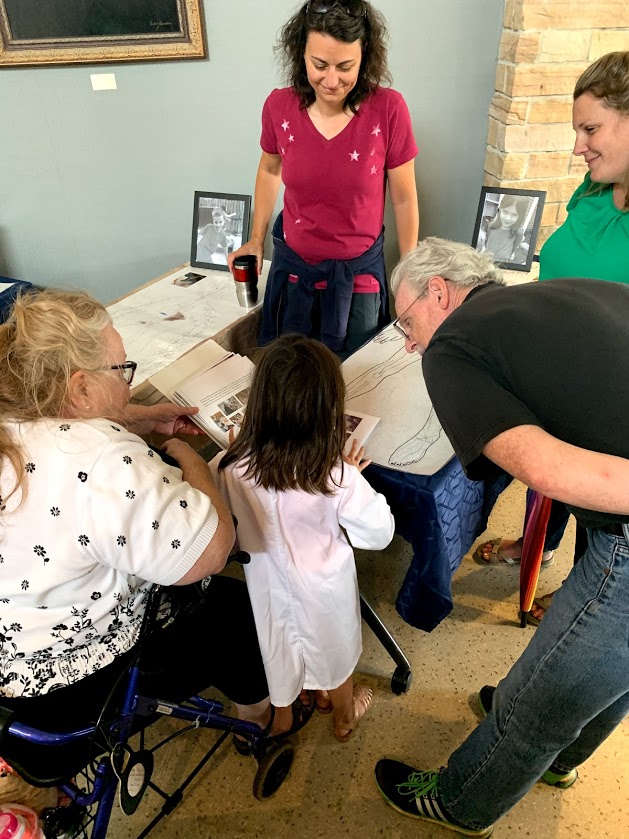
The primary goal of LBCDLS is to serve as a professional development site for Appalachian students planning to work with young children, while at the same time, providing high-quality care for children and families in the community. Almost 99% of the LBCDLS staff are Appalachian graduates.
About the Child Development Major
“By exploring how children develop and learn in context, we prepare professionals who work with children and families across a variety of settings,” said Dr. Denise Brewer, chair of the Department of Family and Child Studies. “We are constructivist and inspired by the pedagogical practices of Reggio Emilia. We aspire to create professionals who consider the cultures within which the child grows and develops.”
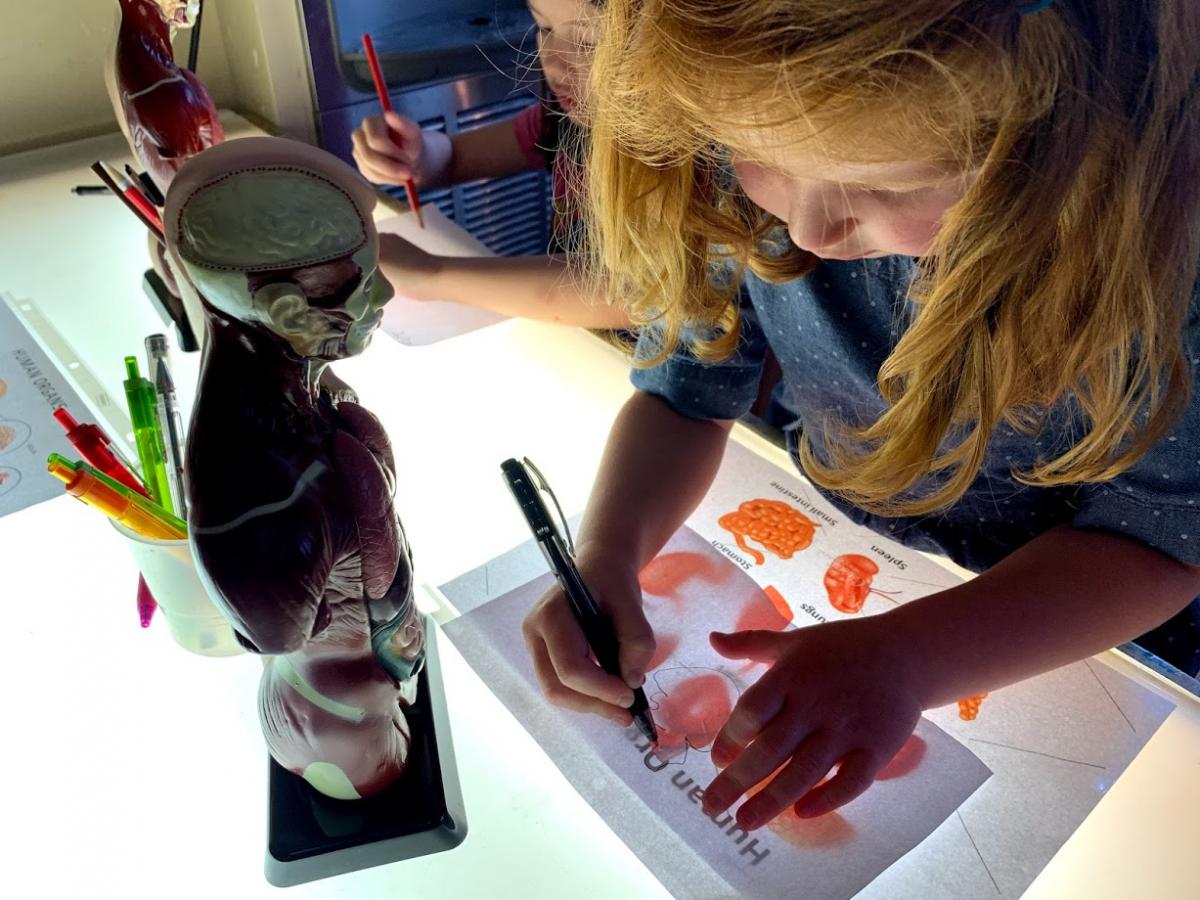
There are two concentrations for child development majors: licensure (birth through kindergarten) and non-licensure. Students in both concentrations gain experiences at LBCDLS. Graduates from these programs are highly sought after by school systems and agencies.
“I chose Appalachian because of the child development program,” said Domenech, who is originally from Lodi, California. “I chose child development because my mom was in early education, and I grew up in the preschool classroom. I always knew I wanted to work with preschoolers and toddlers, and the more courses I take the deeper my love and passion for the age group grows.”
“I love watching children learn through their play and helping scaffold their development as they grow through the classroom,” continued Domenech. “There is so much more happening in their thinking than just what we see them doing.”
